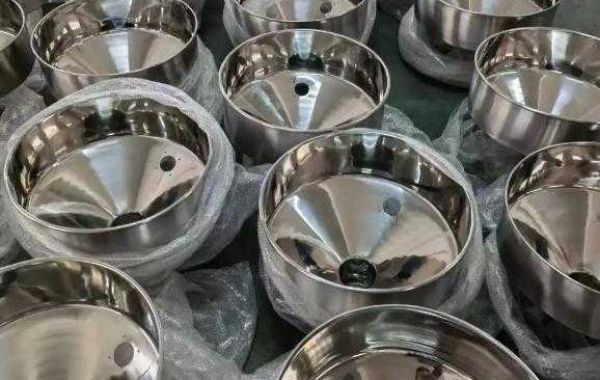Spinning, a precision metalworking process that transforms flat discs into seamless, symmetrical shapes, relies heavily on one critical component: the aluminium circle. Specifically engineered for this technique, aluminium circles for spinning are far more than just round pieces of metal—they are tailored to withstand the unique stresses of spinning, ensuring smooth forming and high-quality results. Let’s explore why these specialized circles are indispensable in modern manufacturing.
What Makes Aluminium Circles Ideal for Spinning?
Spinning involves rotating a metal disc while pressing a tool against it to shape it over a mold. This process demands materials with exceptional ductility, uniformity, and surface quality—traits that aluminium circles for spinning are designed to deliver.
- Ductility: Most spinning-grade aluminium circles are made from 1000-series (pure aluminium) or 3000-series (aluminium-manganese alloy) metals. These alloys boast high elongation rates (often over 20%), allowing them to stretch and mold without cracking, even during deep or complex spins.
- Uniformity: Strict manufacturing controls ensure consistent thickness and grain structure across the circle. This prevents uneven stress distribution during spinning, which could lead to warping or breakage.
- Surface Finish: A smooth, burr-free surface is non-negotiable. It minimizes friction between the tool and metal, reducing the risk of scratches and ensuring the final product has a polished, professional look.
Applications: Where Spinning Aluminium Circles Shine
From everyday items to industrial components, aluminium circles for spinning play a role in countless products:
- Home Lifestyle: Lampshades, cookware (such as saucepans and woks), and decorative vases often start as spinning aluminium circles. Their malleability allows for intricate curves and thin walls, balancing aesthetics with functionality.
- Industrial Parts: Fuel tanks, pressure vessel casings, and automotive trim pieces rely on the process. Spinning creates seamless, leak-resistant shapes—critical for containers holding liquids or gases.
- Lighting Electronics: Reflectors for LED lights and casings for small appliances benefit from the circles’ ability to form precise, lightweight structures that enhance performance.
Choosing the Right Aluminium Circle for Your Spinning Project
Selecting the correct circle depends on your project’s demands:
- Alloy Type: 1050 or 1060 aluminium (pure grades) are perfect for decorative or low-stress items like lampshades, thanks to their superior ductility. For more durable products like cookware or industrial parts, 3003 alloy adds strength and corrosion resistance.
- Thickness Diameter: Thinner circles (0.3–2mm) work well for shallow spins, such as lampshades. Thicker options (2–5mm) handle deep spinning for pots or tanks. Diameters range from 50mm to 1500mm, matching the scale of your mold.
- Temper: Most spinning circles use O-temper (fully annealed) aluminium, which is soft and easily formed. For parts needing post-spin strength, H111 temper offers a balance of formability and rigidity.
Why Aluminium Dominates Spinning Applications
Compared to other metals like steel or copper, aluminium circles for spinning offer unbeatable advantages. They are lightweight, reducing energy use during spinning and making final products easier to handle. Aluminium is also cost-effective, especially for mass production, and its natural corrosion resistance eliminates the need for extra treatments in many cases.
For manufacturers seeking reliable, high-quality aluminium circles tailored to spinning, finding a supplier that understands the nuances of the process is key. Whether you’re producing cookware, industrial parts, or decorative items, the right materials can elevate your products’ durability and finish. For guidance on specifications, alloys, and bulk ordering, industry experts offer valuable resources to streamline your selection process.
In the world of metal forming, aluminium circles for spinning are the foundation of precision and efficiency. Their unique combination of properties ensures that even the most complex shapes can be created with consistency—proving that great products start with the right materials.








